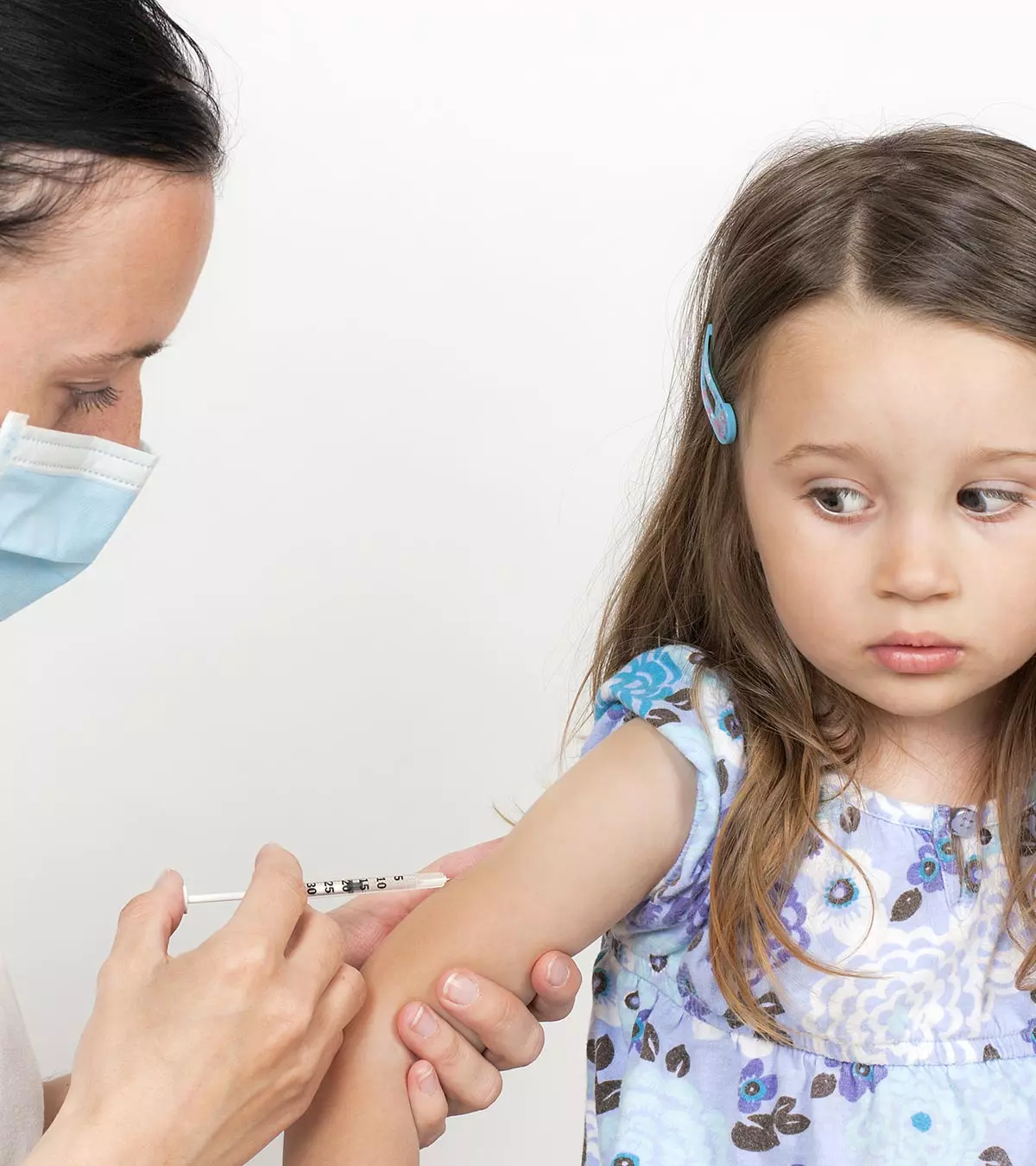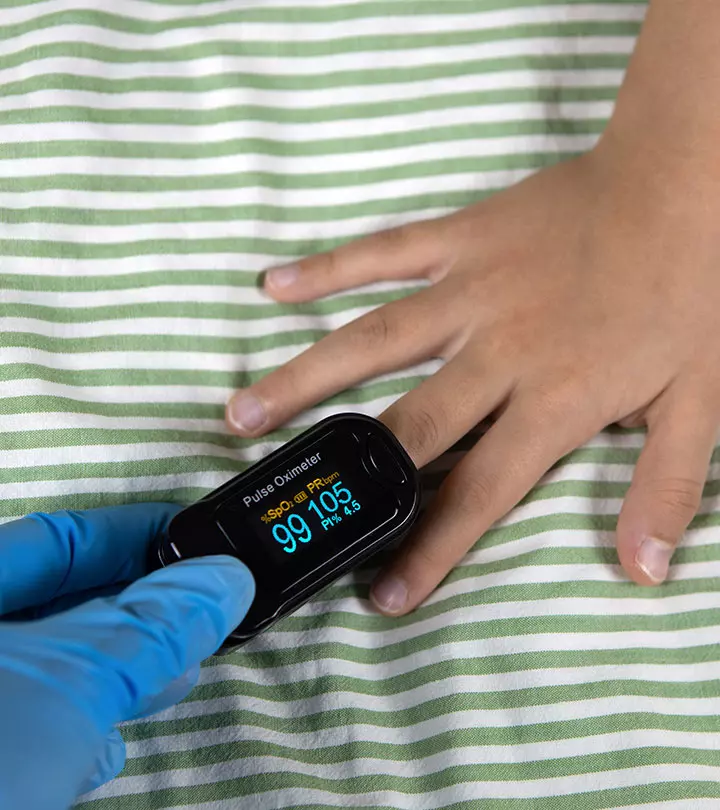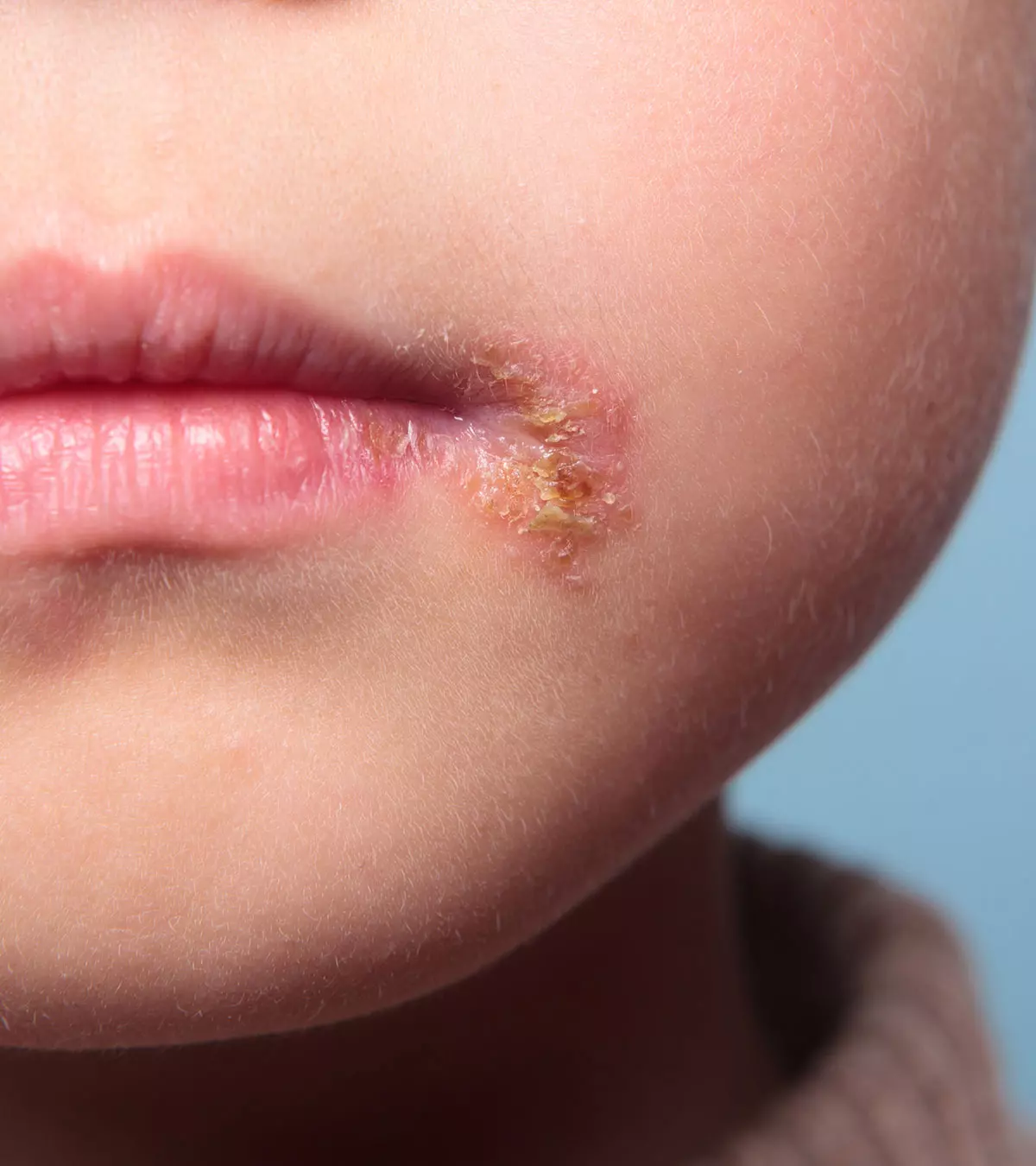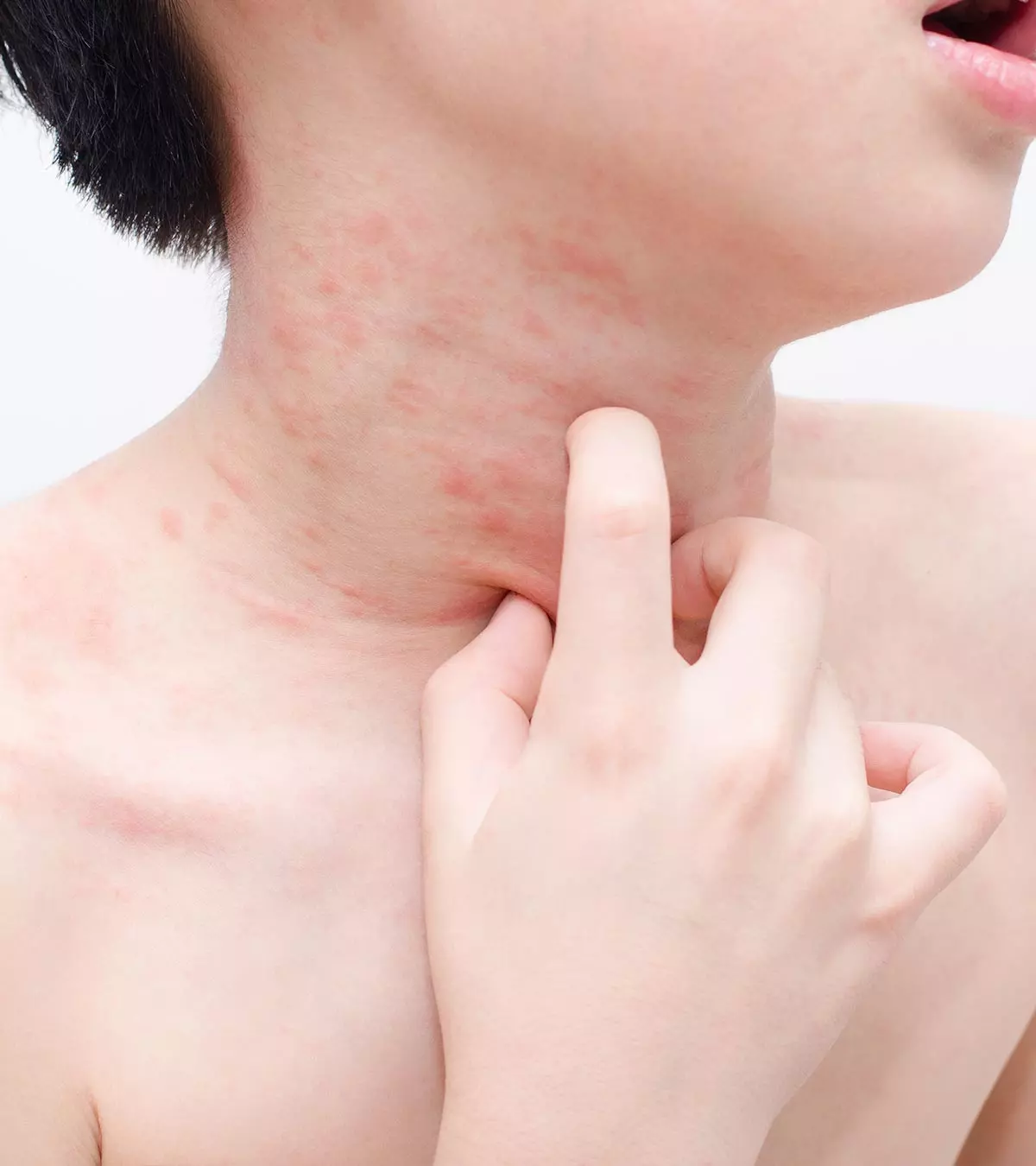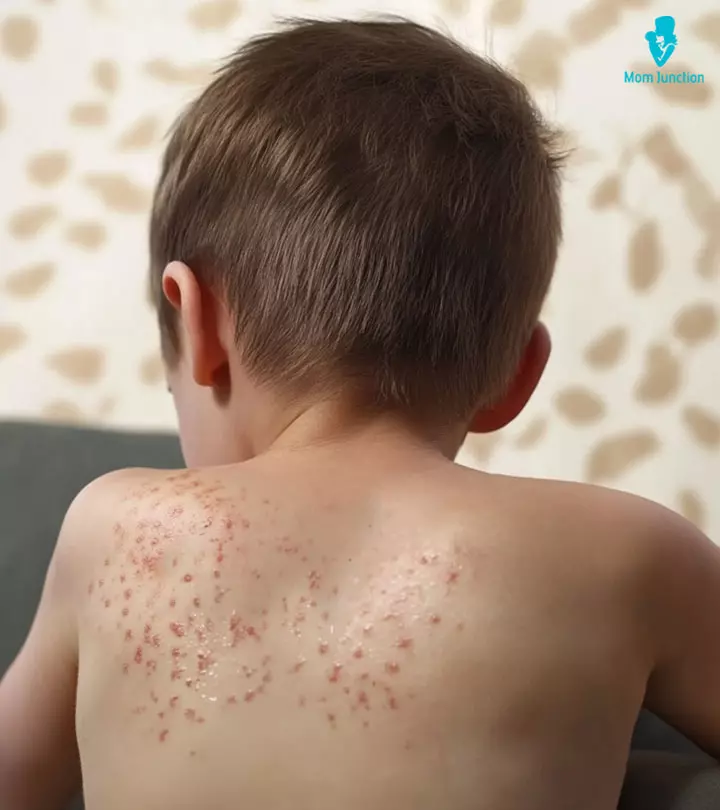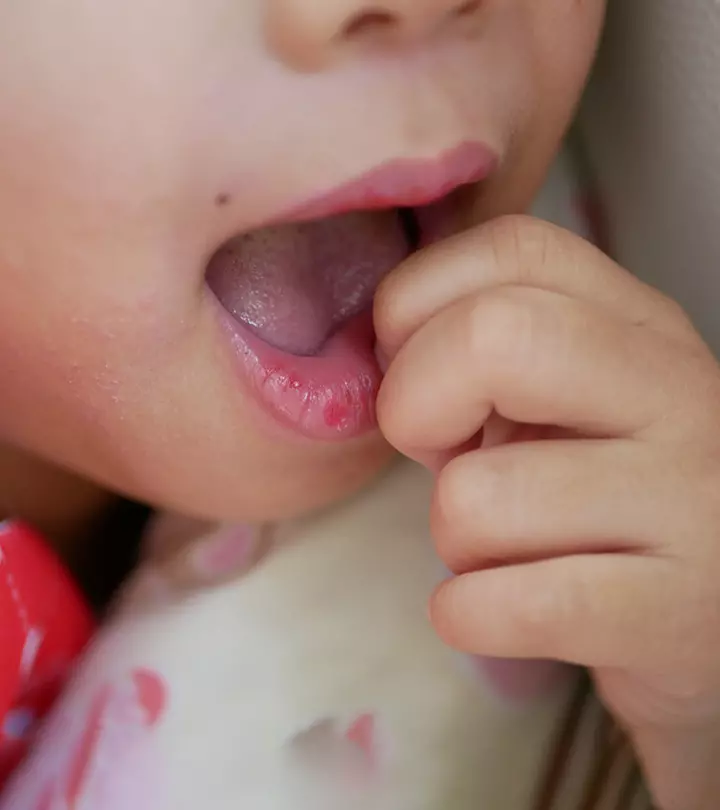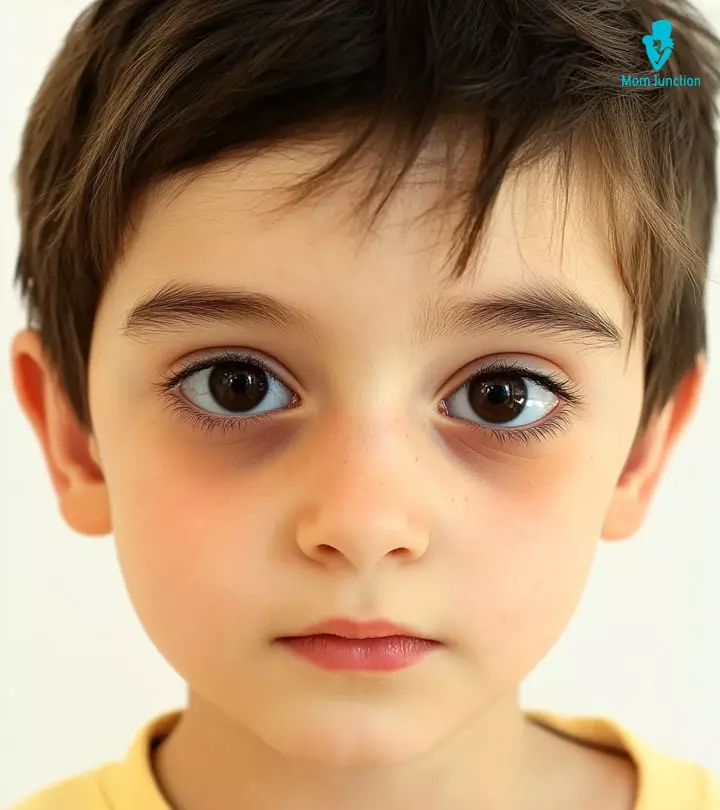
Image: Shutterstock
The rebellious attitude in your teenagers may often manifest as anger

. Hence, you need to know about anger management in teens to help them navigate their feelings. According to Lauren Allerhand, PsyD, a clinical psychologist at the Child Mind Institute, anger is an important part of our emotional lives and shouldn’t be taken as a bad thing (1). However, if your child exhibits drastic mood swings or extreme anger for no apparent reason, it may be a sign of an underlying mental health condition (2).
Allerhand further says that parents should work towards helping their children channel their anger into productive activity and express it in a less harmful way (1).
Read this post as we tell you more about anger management in teens, including the causes and signs of anger in teenagers.
Key Pointers
- Anger constitutes a significant component of emotional changes during adolescence.
- Teenage anger can be exacerbated by mental health issues such as depression.
- Physical violence, addiction, and social isolation are among the indications of anger problems in teenagers.
- Parents can assist in managing their teen’s anger by recognizing their emotions, avoiding excessive criticism, and seeking help from a mental health expert when needed.
Causes Of Teenage Anger

Image: Shutterstock
Teenage years are marked by different physical, hormonal, and emotional changes. Hormonal changes during adolescence can feed into the mood swings experienced by most teenagers. Moreover, the prefrontal cortex of the brain, which is responsible for controlling impulses, is still developing and does not develop fully until 25 to 26 years of age.
Hence, your teenage child’s behavior and inability to control their emotions combined with the hormonal changes can cause them to act out in anger and frustration under certain situations (1) (3).
Besides, other factors may also contribute to teenage anger. These include (3)
- The feeling of being misunderstood due to lack of communication
- Anxiety
- Mental health problems, such as depression
- Substance abuse
- Conduct disorder or antisocial behavior
- Being bullied or being a bully at school
- Hunger
- Stress
It is worth noting that a percentage of teenagers (3.6% for ages 10-14 and 4.6% for ages 15-19) experience anxiety disorders, while others (1.1% for ages 10-14 and 2.8% for ages 15-19) grapple with depression, as per a report by the World Health Organization on adolescent mental health.
 Quick fact
Quick factSigns Of Anger Issues In A Teenager

Image: Shutterstock
From fist and jaw clenching to engaging in dangerous activities, teenage anger can manifest in various forms. The following are some warning signs of anger you should watch out for in a teenager (4) (5).
- Indulging in malicious gossips
- Verbal aggression with foul language
- Physical violence
- Addiction or substance abuse
- Hurtful speech
- Indulging in risky behavior, such as bullying
- Social isolation
- An urge to experiment with weapons
When anger gets out of control, it can also manifest in the form of (5)
- Rapid heartbeat
- Increased blood pressure
- Stomach ache or headache
- Trembling
- Dizziness
- Muscle tension
Stages of Anger In Teens
Even though the anger outburst may be sudden, young people go through a process before exhibiting anger. Understanding the different stages may help parents, or caregivers in understanding and supporting teens in effectively managing their anger. Find below the different stages of anger (6):
- Trigger phase: This phase marks the beginning of the anger cycle. Triggers may arise from external stimuli such as words or actions or internal sources such as a person’s thoughts or memories that elevate feelings of fear or injustice.
- Escalation phase: In this phase, the body readies itself for the crisis, exhibiting signs such as rapid breathing, increased heart rate, elevated blood pressure, tense muscles, louder or altered voice, and/or changes in eye shape, pupil size, and brow position.
- Crisis phase: This phase marks the activation of survival instinct, triggering the fight or flight response. Although the body is primed for action, the ability to make a judgment takes a hit, leading to decisions made with compromised reasoning.
- Recovery phase: In this phase, the body can recuperate from the intense stress and energy expenditure. Adrenaline gradually dissipates, and the return of sound judgment replaces the survival response.
- Post-crisis depression phase: During this phase, the heart rate drops below normal to restore balance. Awareness and energy return and may involve reflecting on recent events. Feelings of guilt, regret, or emotional depression may surface as the aftermath of displaying anger is assessed.
Anger Management Techniques And Tips For Teens
Here are some simple yet effective ways in which you can help your teen deal with anger issues (1) (2) (3) (4) (5).
- Do not force control: Controlling an angry teenager like a young child can make them feel like they are being unheard or not paid attention to. Let them express their opinions and decisions without fear. However, ensure that they understand the boundaries and rules.
- Talk in a mature manner: If you talk with your teenage son or daughter in an authoritative tone, it may only make them more resistant. However, talking to teens in a mature way, especially while explaining the rules and boundaries, can make them respond and act maturely like adults.

Image: Shutterstock
- Respect your teen’s privacy: Privacy is crucial for teenagers. Give them the space they need by not poking your nose into their matters. This may help them feel safe to open up to you about things troubling them. On the other hand, invading their privacy can cause them to be more secretive and make them lose trust in you.
- Acknowledge their feelings and emotions: It is crucial to have stimulating conversations and understand what your child is going through. Understand their problems and overwhelming emotions and help them overcome them rather than trivializing them and dismissing them as typical teenage behavior.
- Do not be overly critical of them: A healthy criticism is necessary to let them know about their mistakes. However, being overly critical and micromanaging can make them question their worth and revolt even more. This is where you need to draw the line and know when to set consequences and when to be lenient.
- Know when to step away: Yelling or verbal attacks will only aggravate the situation. When your teen seems to be getting out of control, step away after giving them gentle and mature advice. This will give them the space they need to cool down.
- Spend quality time: Spending some quality time as a family can be a great way to bond with your teenager. They may not like to play the games they used to as a child, so know their interests and try some activities related to those. For example, you can watch a movie, go for lunch or dinner, or go on a trip together. Such bonding activities may deepen your connection with each other and help you understand their feelings better.

Image: Shutterstock
- Seek help:While anger is normal, sudden or frequent angry outbursts and violent behavior require a professional approach such as counseling. In such situations, seek the help of a child mental health professional and encourage your child to undergo therapy to help cope with their anger and develop positive self esteem.
As parents, you can also teach your teens the following tips on managing anger (2) (7).
- Take a break:Acting out of impulse in a fit of anger is natural but can lead to grave consequences. Hence, as difficult as it may be, teach them to take a break when they sense their rising temper. Self awareness focusing on identifying the root of their anger and assessing its impact on the other person may help them calm down.
- Develop coping skills:Teens with anger issues should learn positive conflict resolution strategies. They can try these simple relaxation techniques to control their temper.

Image: Shutterstock
- Listening to music
- Practicing mindfulness through meditation or taking deep breaths
- Working out
- Drawing or painting
- Counting to 20 before blurting out
- Walk it off: When they feel anger developing in them, it is a good idea to walk away from the crowd and take a stroll for five to ten minutes. This may help them cool down and reflect on their thoughts.
 Point to consider
Point to considerFrequently Asked Questions
1. Why is anger in boys more common?
It is generally believed that boys show more anger than girls. According to research, boys are more likely to express anger-related emotions than girls (8). Another study highlighted that though boys are reported to be more physically aggressive than girls, there are no gender differences in relational aggression (9).
2. When should I worry about my teenage anger?
If your teen acts physically aggressive towards you or others or abuses verbally, their anger can harm their overall well-being. Being consistently aggressive or violent that isn’t always related to the stimulus could be some red flags of anger issues in teens (10).
3. What are the consequences of unmanaged anger in teenagers?
Without timely management, uncontrolled anger may negatively impact a teen’s relationships and mental and emotional health.
4. Can anger management help with other behavioral issues in teens?
Yes, anger management can help enhance teens’ emotional regulation, problem-solving, and communication skills. This can bring a positive change in teenagers’ overall behaviors and social interactions.
5. How long does it take to see results from teen anger management?
The duration for anger management to work for teens may vary individually; however, with sincere effort and consistent practice, you can typically notice improvements in a teen’s behavior and how they handle their emotions within a few weeks to a few months.
6. Can anger management be done in group settings?
Yes, anger management can be done in groups where people come together to talk about their experiences, learn from each other, and practice ways to manage anger. This creates a supportive and understanding atmosphere where individuals can learn and improve together.
7. How can schools support anger management for teens?
Schools can help teens with anger management by providing counseling, teaching programs about emotions and relationships, and offering resources and workshops to learn how to manage anger in a healthy manner.
8. Do anger issues ever go away?
Over time, anger issues can be effectively controlled, channeled, or managed with tailored strategies and interventions. But it’s important to know that everyone is different, and it takes ongoing effort and practice to make long-lasting improvements.
Anger is common in teenagers, and what may be perceived as typical teen behavior may not always be due to mere rebellion or tantrum issues. It is important to understand the various signs of anger your child exhibits to know when to seek help. Irrespective of the reasons, teens with anger issues should be approached with love and understanding and be provided with the right support.
Infographic: Effective Anger Management Tips To Handle Teenagers
Teenagers are prone to stress and rage due to their changing bodies and hormones, studies, peer pressure, and other social variables. Since they are neither children nor adults, you must know how to deal with them correctly as a parent. The following infographic explains a few ways to deal with an angry teen.
Some thing wrong with infographic shortcode. please verify shortcode syntaxIllustration: Techniques And Tips For Anger Management In Teens

Image: Dalle E/MomJunction Design Team
References
- Teens and anger.
https://childmind.org/article/teens-and-anger/ - Managing teen stressors and anger.
https://healthymindsphilly.org/blog/managing-teen-stressors-and-anger/ - Anger in teens.
https://www.youthranch.org/understanding-teen-anger - Teen anger: signs symptoms and management.
https://www.shepherdshillacademy.org/common-teen-issues/teen-anger-signs-symptoms-management/ - Teen anger and aggression- causes and treatment.
https://www.rawhide.org/blog/wellness/teen-anger-aggression-causes-treatment/ - Managing Anger – Yours and Others.
https://adm.viu.ca/workplace-conflict/managing-anger-yours-and-others - Anger management techniques.
https://www.hchc.edu/assets/files/Counseling_formation/Anger_Management.pdf - Tara M. Chaplin and Amelia Aldao; (2013); Gender Differences in Emotion Expression in Children: A Meta-Analytic Review.
https://www.ncbi.nlm.nih.gov/pmc/articles/PMC3597769/ - Jennifer E. Lansford et al.; (2012); Boys’ and Girls’ Relational and Physical Aggression in Nine Countries.
https://www.ncbi.nlm.nih.gov/pmc/articles/PMC3736589/ - Teens and Anger.
https://childmind.org/article/teens-and-anger/#when-to-seek-help - 8 Tips For Dealing With Your Angry Teenager.
https://healthcare.utah.edu/healthfeed/2025/01/8-tips-dealing-your-angry-teenager
Community Experiences
Join the conversation and become a part of our nurturing community! Share your stories, experiences, and insights to connect with fellow parents.
Read full bio of Shreshtha Dhar
Read full bio of Aneesha Amonz
Read full bio of Dr. Ritika Shah
Read full bio of Apoorva K







